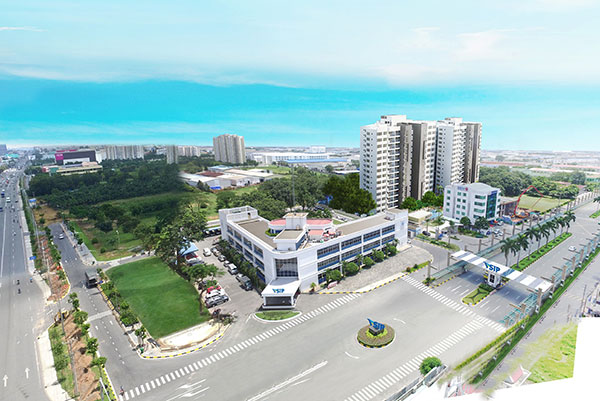Nearly a decade ago, L. D. Hung moved from his hometown at Quang Ngai province to the South, seeking a better life.

After years away from home, Hung left behind a successful career at Binh Duong province for a position in VSIP Quang Ngai, where a prosperous life and a promising job are no longer just dreams.
This is one of the stories that we see happening every day at Vietnam Singapore Industrial Parks (VSIPs). In just a single day, we hear so much about the meaningful connection between VSIP and its employees. We also met other employees who came to see Binh Duong their hometown, who told us about simpler days in the past and their decade-long journey with VSIP.
By seeking job opportunities at VSIP Binh Duong, many employees also excitedly volunteered to return and work for new VSIP projects in their hometowns. Although they have all started their careers differently, their stories end with the same sense of pride for contributing to the success of a model for IPs in Vietnam.
According to the 2015 National Internal Migration Study, the Vietnamese workforce has undergone a significant transition from rural to urban areas which caused difficulties for remote areas to recruiting labourers. It also led to a marked gap in the economic development and social environment throughout the country as labourers seeking higher-paying job opportunities relocate to bigger cities.
In this context, VSIP has a unique business approach to develop a network of integrated townships and industrial parks that offer comprehensive solutions to work, live, and play to attract better investment to Vietnam. Therefore, people from smaller provinces benefit by living in their hometowns with stable incomes and are further equipped to contribute to local economic development.
This strategy was set out following VSIP’s industrial development experience, in resonance with the Singaporean partner's future-forward vision in urban planning. The joint venture aims to help an entire generation of workers like Hung from different provinces to grow and guides them to contribute to the economic development of their home provinces.
VSIP is playing a role in directing and leading workforce migration in the country, with a long-term vision to benefit all provinces. During its more than 20-year journey in Vietnam, VSIP has remained steadfast in its commitment to pioneering the industrial park model in line with international quality standards and has helped to unlock the economic potential, while contributing to the overall development of the provinces where its parks operate—Binh Duong, Bac Ninh, Hai Phong, Hai Duong, Nghe An and Quang Ngai.
A model for the ages
With seven parks in Binh Duong, Bac Ninh, Hai Phong, Quang Ngai, Hai Duong, and Nghe An, totaling a gross area of 6,660 hectares, VSIP has thus far attracted investments from 658 companies. The operations of these companies have brought in $9.1 billion in investment capital, with the combined strength of more than 179,000 workers.
Through enabling further business growth in the areas of operation, VSIP has also seen the wider impact of its operations and have been heartened to see local SMEs take root in the surrounding communities. As a result of its operations, VSIP has seen greater development and infrastructure growth as well as employment for local residents in the provinces.
Nguyen Van Hung, co-chairman of VSIP Group, shared, “VSIP sees improving the life of local communities and contributing to the comprehensive development of Vietnam as part of our mission. We also leverage the experience that Singaporean partners bring to develop sustainable business models which not only create economic value but also have long-term benefits for the community.”
To ensure staying ahead of the competition, VSIP constantly looks for differentiators and value-added services for our customers. VSIP is managed completely as a commercial entity, with strong systems and processes that include a corporate governance structure and enterprise risk management capabilities.
Exploring innovation hubs in Vietnam is a key focus for VSIP’s next chapter of development, with the belief that Vietnam can embrace the greater sophistication expected of world-standard factories. There is less emphasis on low wages, with the growing importance of advanced infrastructure and developing workers’ skills. VSIP has proved the long-term value of its strategy for both businesses and Vietnamese labourers.